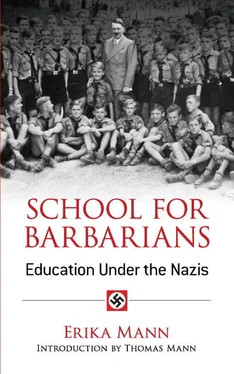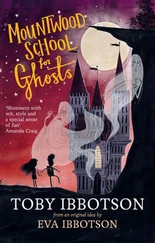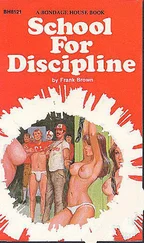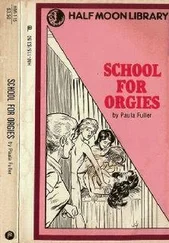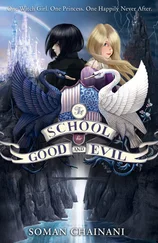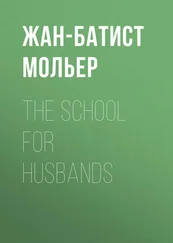Menus arranged by the household publications are just as embarrassed. Vobachs Frauenzeitung suggests for Wednesday dinner, after a lunch of boiled potatoes and cold pudding, nothing but “cottage cheese with linseed-oil.” That’s not much of a dinner; and it is not surprising that the children, transplanted into normal Swiss or Dutch conditions, collapse. Family reunions will not become more gemütlich because of insufficient meals; family life can never be improved by these menus and suggestions.
If life in the family has fallen to such small importance for the average German child, it is infinitely more difficult for the child of Jewish or “non-Aryan” descent. All the misery of the pariah — of being outside and despised — he must suffer because of his parents.
“If only I had other parents, ‘Aryan’ parents,” the child thinks, “I could be happy, like the others — belong to them, go marching and sing their songs. I would be a human being — not an Untermensch, an ‘enemy of the German people,’ a ‘misfortune.’ ‘The Jews are our misfortune,’ they tell us in school — my parents are Jews, and they are my misfortune. If I only had some other parents!”
Many Jewish children will look around the dinner-table and think that. Others will look for protection at home from the persecutions they find outside; but their home is unable to give them that refuge, and the child feels, “They are good, but helpless. Just as I am, they are hit by this misfortune.” Home cannot make up for what happens outside; they are all defenseless, and tragically aware of it.
The Jewish child, in contrast to the “Aryan,” has leisure; he has time to think about himself. The Hitler Youth is closed to him; he may sit at home and brood, for he is forbidden to take part in the “Comrades’ Evenings,” the “Gymnastic Games,” the “National Political Festivals.”
That child, too, sits at home, whose father is Jewish, but whose “Aryan” mother would be taintless, if she had not followed him into artvergessener Verblendung, in an infatuation contrary to her “duties to the race.” Perhaps the young half-Jewish girl sitting at the mirror resembles her mother. She looks at her blonde hair, her small, turned-up nose, and her “Nordic, long-narrow” skull; but her mother’s short face, little chin, and her head that is flat in back, are not reflected in the girl’s well-curved skull. That is a heritage from her father which she refuses to admit. “If I could hide him, if he were my secret!” she thinks venomously. “If only he were dead!”
The idea breaks over her, a great wave, and although she realizes its horror, she imagines what might happen to her if she could move into another city with her mother. She is naturally blonde, she could change her name — of course, her papers would not be in order, but something could be done about that, she feels, if only her father were out of the way. She has heard stories of half-Jews who were declared “Aryan” after their mothers took oath that they were not the issue of the Jewish husband, but of an adulterous liaison with an “Aryan.” “Maybe I’m not his daughter at all,” the girl at the mirror dreams, “Oh, God, if only that could be true!”
This devastation has entered the souls of children. If the “Aryan” child suffers objectively through the destruction of the family, the “non-Aryan” child receives the full subjective impact; he knows how great the damage is. He knows the grief of his parents because they are Jews and their chances of making a decent living have been taken from them. He sees one Jewish parent going about like a criminal, and the growing hatred or the tragic pity that the “Aryan” parent feels for the other. And he loves both his parents; perhaps, however, he adores the Führer; and his deepest wish is to “belong” — to be a “pure Aryan.”
The quarter-Jews are in the strangest situation of all; those children having (according to the Nuremberg laws) one Jewish grandparent are treated almost like “Aryans” in school; they are good enough to be aufgenordet (Nordified), and it will be their duty in time to marry a “pure Aryan.” For their part, “Aryans” are permitted to marry quarter-Jews — indeed, some of them will have to, to bring about the State’s “Nordification.” At home, the child must resign himself to the fact that one of his parents is a half-Jew. Some of these children have been given the businesses of their half-Jewish fathers, and taught that, whether the father has founded it and brought it to success or not, it actually belongs to the child, and the father is countenanced as manager by him and his mother. The Führer wills it.
These shattered “mixed” families are the exception, however. A much larger group of “mixed” families have retained dignity and pride, and have not been broken by the degradations they suffer under National Socialism. Whether by regarding themselves as a nation which they hope to see united into a national Jewish State, or by a standard of reason and humanity which is out of place in modern Germany, they stand with the opposition made up of millions of Catholics, Protestants, liberals and ordinary decent human beings. And if their children have been kept out of the Nazi schools and put in the Jewish ones, they feel personal pride and the distinction of belonging in this “camp.” They have that possibility far more than the “Aryan opposition,” which is, except for the churches, diffuse and broken up. They have a chance of organizing because they live harmoniously in closed groups. And, through all the danger, they are far more gemütlich than any Nazi—or apparently Nazi — family can be today.
Of course, many “non-Aryan” families have been reduced or destroyed under National Socialism. Robbed of a future, children were sent abroad to school or emigrated, if they could, to start life again in England or America or Palestine. The parents, alone in Germany, often do not dare to correspond with them, and many have died without seeing their emigrant children. Often months pass before the children learn of the death of these parents.
The life of the “non-Aryan” family has been altered in the dissolution. The “non-Aryan” child of a “mixed” family cannot face his relatives openly any more. He feels his situation as a problem to them, even to those whose sympathies lie with the Jewish members of the family.
The separation which exists throughout Germany in the lives of adults and children — a separation between official and private life (such as it is), between controllable and secret activities — makes schizophrenes of many children. Bewildered and torn, forever at odds with themselves, they turn in tragic confusion.
Association between “Aryan” and Jewish children is, of course, absolutely forbidden.
A little Jewish girl is going down the main street of a small town. She is thirteen, and very pretty; and coming toward her is a boy she recognizes, a friend of pre-Hitler days, who used to play in the sand with her, and who is now wearing the uniform of the Hitler Youth. She waves at him, naturally and without thought. But he does not wave back; he approaches, his face set straight ahead, and dashes past as if he hasn’t seen her. Now she hurries home, head down in shame, not wanting to walk any more, after that! She hasn’t been home more than five minutes before he knocks at the door.
“Look,” he begins, red-faced and stammering, “I only wanted to know how you are, Ruth…”
She is shaken with joy, with fright and surprise. “You’re mad to come here,” she whispers. “What if somebody saw you?”
“It’s all right,” he answers. “Nobody saw me come. And you won’t tell; you’re no denouncer!”
Читать дальше
